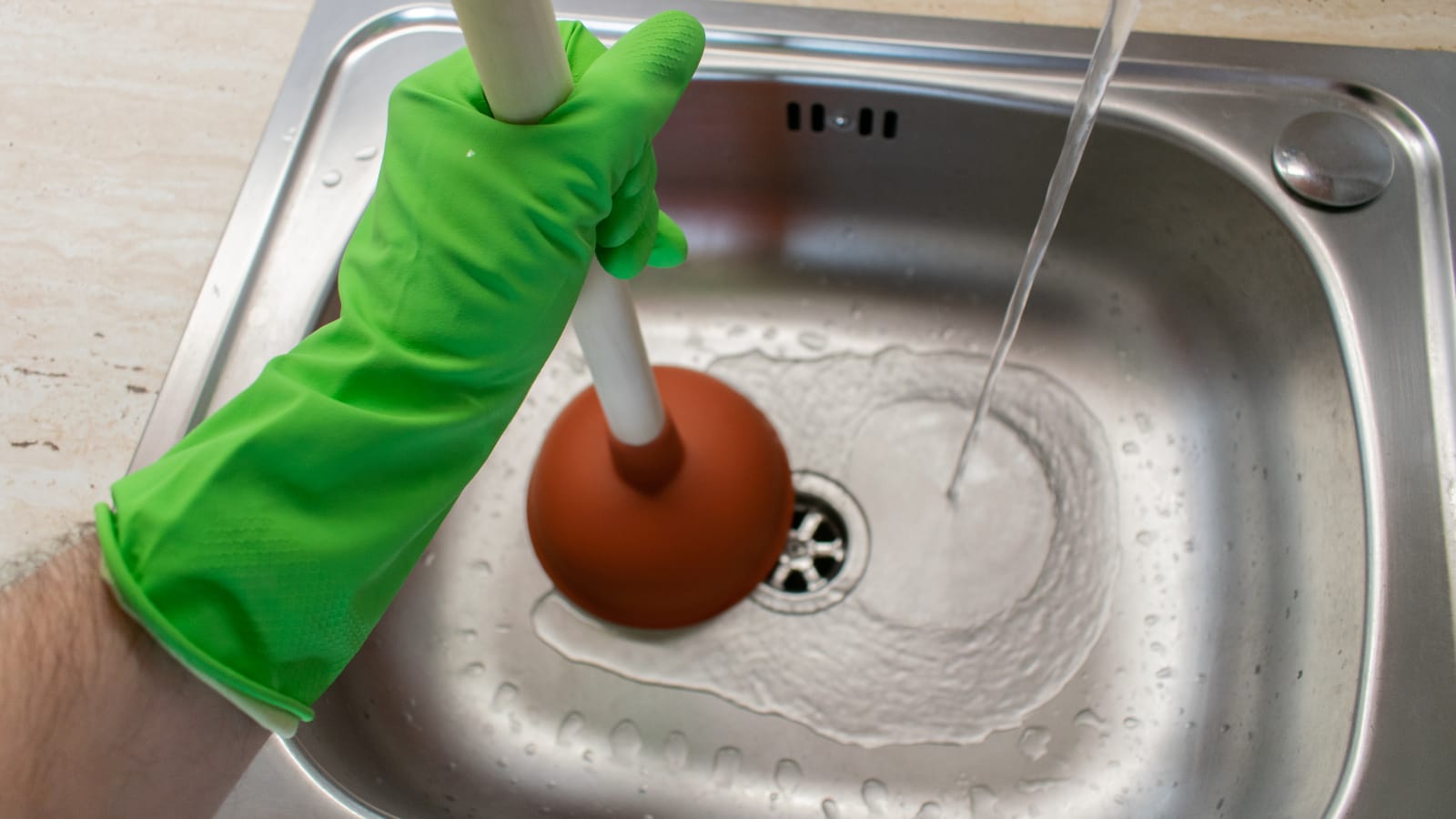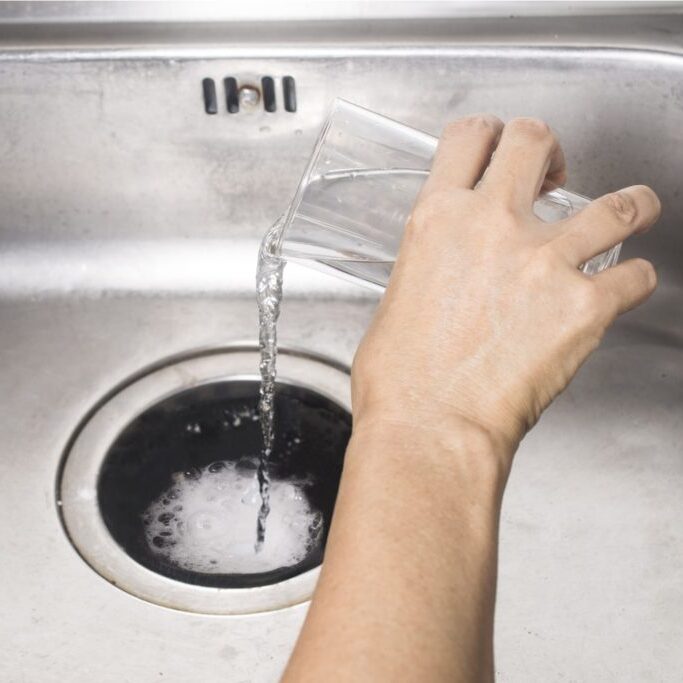Basic Ways To Fix A Slow-Draining Sink
Basic Ways To Fix A Slow-Draining Sink
Blog Article
They are making several great points regarding 7 Ways To Fix A Slow-Draining Sink Before You Call A Plumber overall in this article underneath.

Introduction
We've all existed: You're cleaning your teeth or cleaning your hands, and you observe the water merging in the sink. As opposed to promptly swirling away, it lingers, transforming your once-refreshing early morning routine into a miniature overload scene. A slow-draining sink isn't simply annoying; it's frequently a sign of bigger pipes concerns lurking beneath the surface. Fortunately is that most slow-draining sinks can be repaired with a little know-how, a few basic devices, and some persistence. Prepared to tackle this task head-on? Let's roll up our sleeves and dive right in.
Understanding the Sources Of a Slow-Draining Sink
Before you begin poking around in your pipes, it helps to understand what may be triggering the slowdown. Comprehending the root cause makes it less complicated to choose the right fix.
Tools and Materials You'll Need
The right tools make all the difference. Thankfully, you won't require a totally equipped plumber's van to do the job.
Step-by-Step Guide to Fixing a Slow-Draining Sink
Currently, allow's get into the nitty-gritty. This detailed procedure will direct you through simple techniques to restore your sink's water drainage.
Action 1: Remove and Tidy the Stopper
Frequently, the stopper (that tiny plug you lower to obstruct water) is the initial offender. Remove it thoroughly and wipe any kind of hair or crud caught around its base. Wash it thoroughly before putting it back in place.
Step 2: Use a Bettor to Dislodge Particles
Got that bettor all set? Placement it over the drainpipe and provide it a few firm pumps. The idea is to produce suction that can loosen up any kind of blockage. If you see bits of debris drifting up, you're on the appropriate track.
Step 3: Attempt a Drainpipe Serpent or Cable Hanger
If the bettor does not work, it's time to draw out the drain snake. Delicately feed it right into the drain and spin as you go. You might really feel some resistance-- that's most likely the obstruction. Keep turning and pulling till you eliminate the blockage. If you don't have a drainpipe serpent, a corrected cord hanger can operate in a pinch.
Tip 4: Apply a DIY Drainpipe Cleaner
An all-natural cleaner made from cooking soft drink and vinegar can break down recurring grime. Put half a cup of cooking soft drink into the drainpipe, followed by half a cup of vinegar. Let it fizz for around 15 minutes, then flush with warm water. This chemical reaction typically does marvels for minor blockages.
Tip 5: Reassemble and Evaluate the Sink
Placed everything back with each other and run the tap. Does the water currently swirl down the drain at a decent rate? If yes, offer on your own a pat on the back. Otherwise, do not despair-- there are still a couple of more tricks up your sleeve.
Essential Devices for Do It Yourself Repair Works
A bettor is your best starting factor. A tiny, sink-sized bettor develops suction that can displace minor clogs. For more consistent obstructions, a drain snake (occasionally called a plumber's auger) functions wonders. A pair of gloves, a flashlight, and possibly a set of protective goggles are likewise helpful.
Recommended Cleansing Solutions
Mild recipe soap and warm water can assist break down greasy accumulation. A mix of cooking soft drink and vinegar is a time-tested natural remedy, and chemical cleaners provide a more environmentally friendly strategy. Maintain chemical drain cleaners as a last hope, as they can be rough on your pipelines.
Usual Culprits Behind Slow Drain
So, what's obstructing points up? Normally, it's a mixture of day-to-day particles-- believe hair, soap residue, toothpaste residue, and leftover food bits. In time, these little bits gather and cling to the pipe wall surfaces, slowly narrowing the passage and making it harder for water to travel through. In some cases, natural resource from hard water can additionally contribute to the gunk, producing the perfect tornado for stubborn obstructions.
When is it Time to Act?
If you notice the water draining pipes slower than usual, it's a great idea to interfere faster rather than later on. Waiting as well long could bring about complete obstructions, unpleasant odors, or perhaps pipeline damages. If the water takes more than a couple of secs to clear out after switching off the tap, consider it a red flag and get ready to put on your DIY hat.
Safety First: Preventative Measures and Preparations
Before you launch into unclogging setting, think of safety and security. You're handling potentially unclean water and particles, so slip on a set of gloves. If you're utilizing chemical cleaners, make sure the space is well-ventilated and comply with the directions on the label.
Protective Equipment and Work Space Arrangement
Put down some old towels or rags around the sink location to catch splashes. Eliminate any type of items that could get in your means, like soap dispensers or toothbrush owners. Ensure you have excellent illumination-- grab a flashlight if required.
Alternate Methods for Stubborn Clogs
Not all obstructions are created equivalent. If your sink still rejects to work together, consider these different options.
Sodium Bicarbonate and Vinegar Approach
We already touched on this, but it deserves keeping in mind once more. This gentle, environmentally friendly approach is safer than chemical cleaners and commonly quite effective.
Enzymatic Drain Cleaners
Enzyme-based cleansers use natural germs to absorb raw material. They're an outstanding option if you're looking to prevent severe chemicals. Just keep in mind, they may take a bit longer to work their magic.
Chemical Drain Cleaners: Advantages And Disadvantages
Chemical cleansers can blow up through challenging clogs fast, yet they're not without downsides. They can create warm and fumes, damage pipelines if utilized exceedingly, and posture environmental dangers. Use them moderately, and constantly follow the instructions thoroughly.
Safety Nets to Maintain Your Sink Flowing
Prevention is the best cure. By embracing a few easy practices, you can keep your sink from decreasing to begin with.
Regular Cleansing Routines
Wipe down the sink basin and component location routinely. Get rid of hair or food fragments before they have a possibility to wash down the drainpipe.
Preventing Harmful Materials Down the Drain
Hesitate prior to dumping coffee grounds, grease, or coarse veggie scraps down the sink. These perpetrators cling to pipe wall surfaces, creating clogs over time.
Routine Upkeep Checks
Arrange a quick monthly evaluation. Run hot water through the sink for a few mins, taking note of the flow. If it appears slow, act quick before it becomes a full-on obstruction.
When to Call a Specialist Plumbing
Sometimes, despite exactly how difficult you try, that obstruct simply won't move. That's when it's time to bring in the pros.
Indicators That Indicate a Much More Significant Concern
If your sink drains gradually in spite of multiple attempts, or if you notice water backing up in other components (like your shower or commode), you may have an extra serious plumbing problem hiding much deeper in the system.
Balancing DIY Efforts with Professional Assistance
While DIY can conserve you cash and use a feeling of success, there's no shame in calling an expert. An expert plumber can assess your whole plumbing setup, ensuring there's no underlying damages or long-lasting problem that can cost you extra later on.
Comparing Prices and Long-Term Solutions
Prior to making a decision, consider the big picture. An affordable, quick fix might fix the trouble briefly, yet buying a much more irreversible option might conserve you money and stress over time.
Weighing the Expenditures of DIY vs. Specialist Fixes
DIY solutions often set you back bit more than the cost of a bettor or a bottle of baking soda. Specialist services, on the other hand, included a cost but may protect against repeated issues and expensive fixings later on.
Investing in High Quality Fixtures and Upgrades
If your sink's style adds to regular blockages, it might be worth upgrading to higher-quality components or changing the plumbing layout. Consider this an investment in your house's functionality and convenience.
Final thought
A slow-draining sink can feel like a small irritability, yet it's typically an indication that your pipes requires a little tender loving care. By understanding the origin, using the right tools and methods, and dedicating to easy safety nets, you can keep your sink moving easily. And when all else stops working, never ever be reluctant to contact a professional-- your home's pipes is worth the financial investment in care and upkeep.
Three Common Ways to Fix a Slow Drain
Baking Soda Method
Boil a full pot of water. Measure out cup of baking soda and pour it down the drain. Then take cup of the magical cleansing substance known as white vinegar and drop that down there too. Allow the mixture to fizz in the drain for five minutes as the vinegar and baking soda combine. Now dump in that whole pot of boiling water. This combination of cleaning substances should clear out anything that is causing your sink to drain slowly. If it doesn t...
Zip-It
If the baking soda method doesn t clear out your drain, it may be because a significant amount of hair and/or other debris has collected there and you need to remove it. Purchase a Zip-It tool at any home improvement or hardware store and insert it into your drain. It will catch any collected hair or debris that s blocking the flow of water. Pull it out. If it s got a big clump of hair, etc. on the end, you ve probably got your culprit.
Drain Cleaner
If these methods don t work, there is the standard drain cleaner that you can also buy in a hardware store or even your local grocery store. It s better if you can use a household solution, but these drain cleaners often work in a pinch. They re very simple to use. You generally just dump them in your drain and wait. If even this method is not effective, it may be time to call the plumber.
https://www.mrrooter.com/oneida/about-us/blog/2017/july/three-common-ways-to-fix-a-slow-drain/

I discovered that blog entry about when scouting around the search engines. Make sure you take the time to distribute this write-up if you enjoyed reading it. Kudos for your time. Revisit us soon.
Get A Free Estimate Report this page